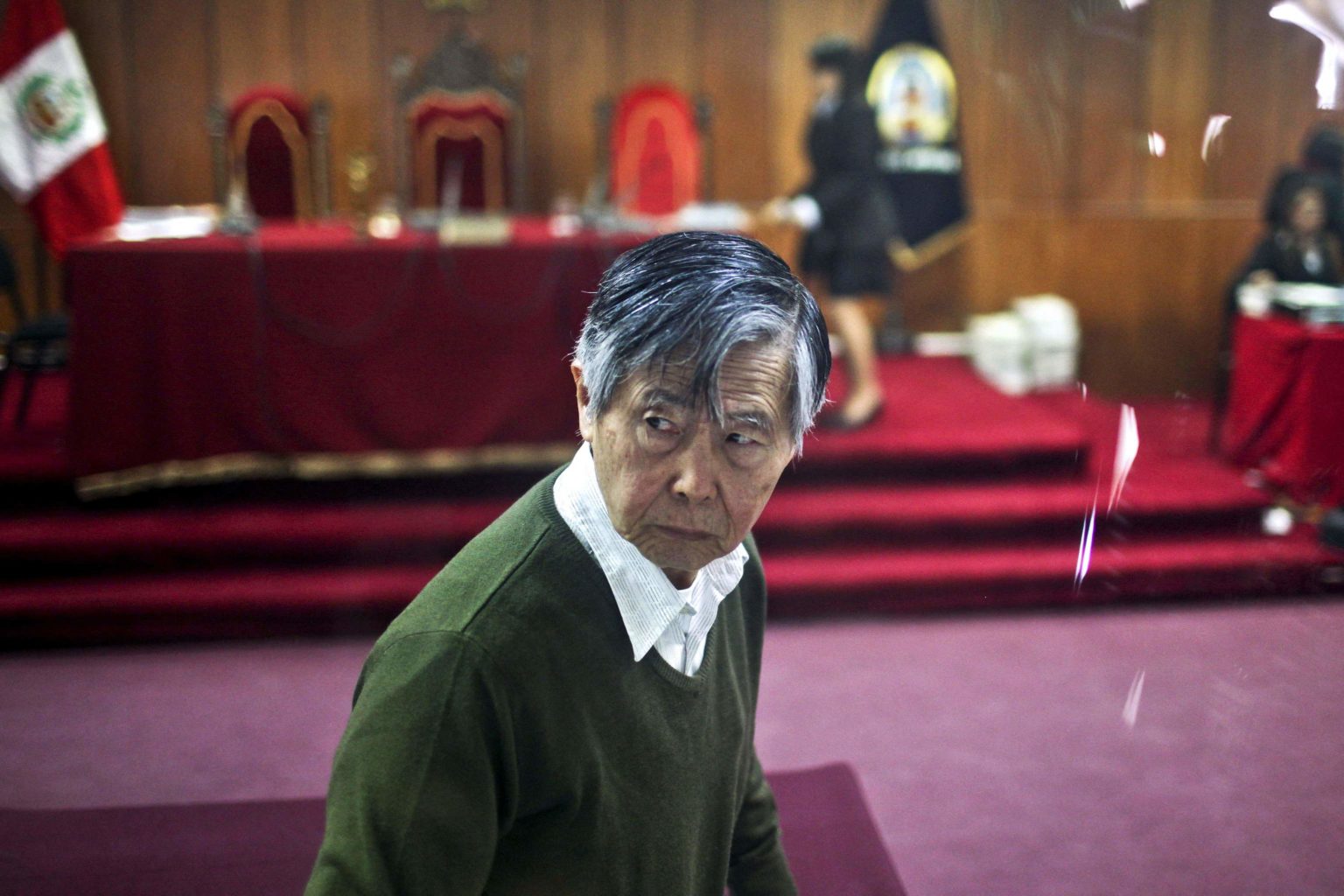
Former Peruvian dictator Alberto Fujimori during a court hearing in 2022. Photo: AFP/File photo.

Orinoco Tribune – News and opinion pieces about Venezuela and beyond
From Venezuela and made by Venezuelan Chavistas

Former Peruvian dictator Alberto Fujimori during a court hearing in 2022. Photo: AFP/File photo.
The Constitutional Court (TC) of Perú has ordered the immediate release of the infamous Peruvian dictator Alberto Fujimori after a habeas corpus was granted to him, despite the fact that the Inter-American Court of Human Rights (IACHR) formally requested his release to be suspended.
“This Constitutional Court orders that the National Penitentiary Institute (INPE) and the director of the Barbadillo Prison (where Fujimori remains imprisoned), immediately release the favored person, Alberto Fujimori,” reads the court order issued this Tuesday, December 5.
The ruling was signed by three of the six members of the TC, with the casting vote of the president of the Court, Francisco Morales, and called the attention of the judge of the First Preparatory Investigation Court of Ica, who had decided not to proceed with the release of the dictator.
The resolution from the TC includes a clause stating that the Court of Ica must “exercise more diligence and zeal in the fulfillment of its functions when executing the sentences approving habeas corpus.”
Relatives of the victims of the Peruvian dictator condemned the Court’s decision as unacceptable, since it puts their rights and the rights of all who suffered under Fujimori’s rule below Fujimori’s undue freedom.
Bolivia’s Luis Arce Stands with Pedro Castillo, Human Rights, and Democracy in America
“We demand a firm commitment to the principles of justice and human rights,” read a statement published online by the IACHR condemning Fujimori’s release, “and we call for institutional responsibility to avoid actions that put the integrity of justice and the fight against impunity at risk.”
Dictator Alberto Fujimori was sentenced to 25 years in prison for the victims of the Barrios Altos and La Cantuta massacres in Lima. In 2017, he was granted a pardon, shortly annulled by the Judiciary in 2018 at the request of the IACHR. Meanwhile, the constitutional Peruvian President Pedro Castillo continues to be unjustly imprisoned after almost one year of irregular and controversial detention.
Last week, the IACHR showed concern about the possible release of Fujimori by the TC, but expressed in its resolution that the IACHR lacks jurisdiction in “matters of compliance with sentences, to determine the unenforceability of a sentence.” However, they also noted in their condemnation of the decision that “the international community is closely watching this challenge to international legality.”
#URGENTE se registran enfrentamientos entre la policía y los ciudadanos frente al Palacio de Justicia. Los ciudadanos se han autoconvocado en este lugar para mostrar su rechazo ante el indulto de Alberto #Fujimori @teleSURtv pic.twitter.com/bGEIgoqhpJ
— Alejandra Elías (@caidaalnacer) December 6, 2023
Police repression
The Peruvian police forces were recorded violently repressing a group of people who were peacefully demonstrating against the Constitutional Court’s ruling on that Tuesday. Videos posted through social media display police officers attacking protesters who were in front of the Palace of Justice in condemnation of the pardon granted to the dictator.
After learning of the order to release the Peruvian dictator, relatives of the victims of Barrios Altos and La Cantuta in Lima, as well as numerous other members of the public, gathered in front of the Palace of Justice to reject the ruling. Hundreds of people, bearing flowers and photos of university students murdered by Fujimori’s military squad, chanted “the pardon is an insult” in clear rejection of the TC’s decision.
“This is an outrage, an attack on the right to justice that the families of the victims have,” said Carmen Amaro, sister of student Armando Amaro Cóndor, victim of the La Cantuta University massacre in 1992, to local media during coverage of the protests.
(Telesur) with Orinoco Tribune content
Translation: Orinoco Tribune
OT/JRE/AU